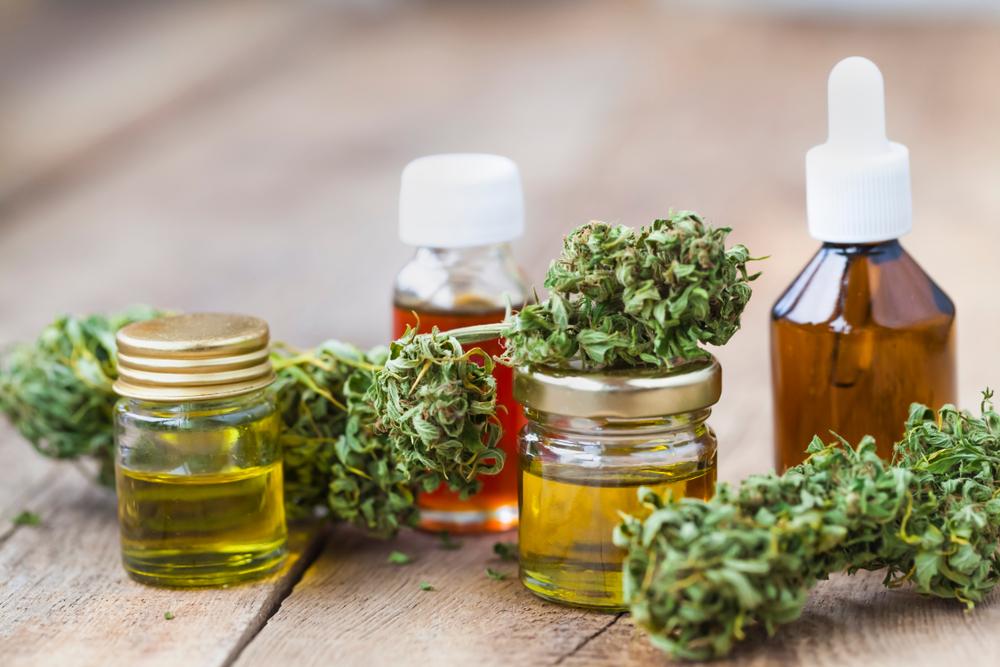- news
- what is the farm bill and how does it make thc legal in the us?
What Is the Farm Bill and How Does It Make THC Legal in the US?
10.21.2021 | Reading Time:Written by: Loren Baker

Share
In 2018 a new Federal Farm Bill was passed. That in itself isn’t remarkable — Farm Bills come every four of five years.
But this Farm Bill made provisions for hemp. Not just pilot programs or university research of hemp, though, as seen in the past...no, 2018’s Farm Bill made hemp’s cultivation, extraction, transportation, and sale entirely legal.
In a sense, it ushered in a new era. Keep reading to learn how the Farm Bill made THC legal in the US.
- Farm bill history
- The farm bill and hemp-derived products
- The cannabinoids the farm bill legalized
Farm Bill history
Per Wikipedia, Farm Bills can be “highly controversial,” impacting things like “international trade [...] food safety, and the well-being of rural communities.” [1]
Though indeed controversial, the 2018 Farm Bill stands to greatly improve rural communities and their ability to participate in international trade. Across the Country small, local CBD companies are springing up. Many of them are self-funded and family-owned, and many of them source hemp from local farmers.
The whole thing has that ‘cottage industry’ feel...and yet it’s bringing in corporate money. Hemp farmers stand to make as much as several thousand dollars per acre, figures which exceed virtually every conventional crop. These same farmers can now get access to crop insurance, too, which was unavailable for hemp in the pre-Farm Bill era.
Money is also flowing into the retail side of things. Hemp companies are bringing in enough to attract attention from angel investors; other companies are poised to go public as soon as the stock market allows it. The industry on a whole is blowing up, too: hemp and CBD sales are projected to break through the $20 billion mark by 2022. Thanks to the Farm Bill, the floodgates have opened.
The farm bill and hemp-derived products
The Farm Bill also means good things for product safety. Hemp really is an accumulator plant, which means a clean growing environment is especially critical. These lessons have been learned from 2014’s Farm Bill and its “pilot programs”, sometimes the hard way, and now most hemp farmers understand the importance of optimizing soil conditions.
Post-harvest support is also getting better as hemp testing facilities mature and evolve. All in all, farmers have more resources than ever. Growing hemp is no longer the gamble that it once was.
The areas of product and food safety have been where things get their most controversial. While the USDA is officially in charge of all things industrial hemp, the FDA gets involved once the plant is added to food. And for whatever reason, they have a more negative view of hemp and its chemical constituents.
Things began to heat up several years back, when the FDA sent warning letters to several major CBD companies regarding medical-sounding claims, interstate commerce, and even customer testimonials. Fast forward to May of this year, and it’s no surprise that a public hearing about the agency’s view of CBD and the pro-CBD Farm Bill generated a lot of interest.
Check out a transcript of the full hearing for yourself...or opt to read an excerpt of the FDA’s statements below. [2]
“Nowhere is this [need for evaluation] truer than with CBD. While we have seen an explosion of interest in products containing CBD, there is still much that we don’t know.”
True, perhaps. But there’s also so much that we do know, though the best research on CBD has been overseas due to research barriers in this Country. Maybe the FDA hasn’t heard about CBD’s potential use as an anti-inflammatory agent, or maybe they didn’t know that a fellow government agency has a patent on the compound? [3]
Regardless of FDA involvement, we’re hopeful that the 2018 Farm Bill marked a step in the right direction. And it seems as though everyone involved in helping propel the hemp industry forward agrees!
The cannabinoids the farm bill legalized
And the Farm Bill didn’t just legalize CBD. It legalized any amount of any hemp-derived cannabinoid, with the sole exception of ‘regular’ delta-9 THC:
- Any amount of hemp-derived CBD
- Any amount of hemp-derived CBDa
- Any amount of hemp-derived CBG
- Any amount of hemp-derived CBGa
- Any amount of hemp-derived CBC
- Any amount of hemp-derived CBCa
- Any amount of hemp-derived CBN
- Any amount of hemp-derived delta-8 THC
- Any amount of hemp-derived delta-10 THC
- Trace amounts (<0.3%) of hemp-derived delta-9 THC
Summing things up
We have 2018’s Federal Farm Bill to thank for where we are now. Not only is the CBD industry booming, not only is delta-8 THC continuing to gather steam...but the industry as a whole continues to grow bigger and bigger. At five ™ CBD we’re pretty excited to see what comes next.
Citations
- Wikipedia contributors. (2021e, October 10). United States farm bill. Wikipedia. https://en.wikipedia.org/wiki/United_States_farm_bill
- FDA Public Hearing on Products Containing Cannabis or CBD compounds. (2019, May 31). U.S. Food and Drug Administration. https://www.fda.gov/news-events/speeches-fda-officials/remarks-dr-sharpless-fda-public-hearing-scientific-data-and-information-about-products-containing
- Hampson, A. J. (1998c, April 21). Cannabinoids as antioxidants and neuroprotectants. Google Patents. https://patents.google.com/patent/US6630507B1/en

